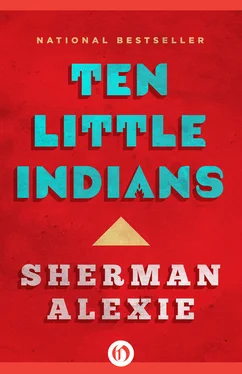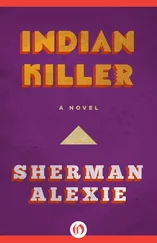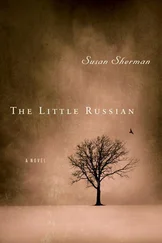“We all want to be special,” I said. “We all want to be the last surviving member of our species. A right-wing woman like Matalin is the only woolly mammoth, and Carville is the most singular white donkey ever born in the state of Louisiana. So maybe Matalin and Carville wear public masks over private faces.”
“Or maybe they’re like house cats,” Teresa said.
“What?” I asked, puzzled by her analogy.
“No, really,” she said. “We didn’t domesticate cats. They domesticated themselves. But not totally, you know? You take a good look at any house cat, and you can tell there’s eventually going to be a day when it goes back wild, you know? When it reverts to its true nature. You fall over and die in a house with your dog, and your dog will lie down beside your dead body, maybe right on top of it, and starve to death. But a house cat will feast on your eyes as soon as its stomach starts growling.”
“So what are you?” I asked. “A cat or a dog?”
“Depends on the situation,” she said.
I stayed too long after dinner because she stayed too long after dinner. We wanted to be left alone together, but we didn’t want to leave together while everybody was watching. We stood at the bar and talked for a few hours about the usual things, but she was unusually smart and funny and tender. I thought about marriage. God, I felt like a sixteen-year-old girl eagerly reading Bride’s magazine. And then I saw our reflections in the mirror behind the bar. She was short, blond, blue-eyed, and white-skinned. I was tall, black-haired, brown-eyed, and brown-skinned, the love child of Crazy Horse and Josephine Baker, of Sacajawea and Julius Erving, of Zora Neale Hurston and Geronimo, of Pocahontas and Malcolm X. I thought about genetics. What kind of kids would Teresa and I produce? What would they look like? I wondered if a black Indian could stand at the victor’s podium and thank his white wife and half-white children for all of their support during the long and successful campaign. Sadly, I decided no candidate would deliver that speech during my lifetime, and probably not during my future children’s lifetime. A simple politico dinner had presented me with a profound moral dilemma. It was a wonderful opportunity for me to self-define. Were my eccentric needs as an individual more important than the country’s desperate need for excellent leadership? I knew I would never achieve my full potential as a public servant if I married a white woman. I would lose votes each time I kissed my wife in public, and I would lose thousands of votes if my wise and terrible opponents created campaign ads that featured public displays of affection between my white wife and me. Any such ads would verbally attack my liberal politics, but the visuals would silently condemn miscegenation. You might think I’m overreacting. But I’ve learned it’s never too early to make your first political mistake. Teresa might have been a wonderful life partner, but I knew my country needed me more than any future wife might. Did I make the correct decision? Personally speaking, I was wrong. Politically speaking, I had no choice. But I didn’t cause Teresa any significant pain. I could have taken her home that night, slept with her, and abandoned her. But I am not that kind of man. I am not cruel.
Instead I said good night to Teresa, and gave her my card, and promised to call her, but I never did. After that night, I often saw her at meetings, rallies, fund-raisers, and dinners, and we always exchanged pleasantries. The last time I saw her, she told me she had quit her job and was moving to Paris to experience a different part of the world. I warmly congratulated her and wished her well, but I felt abandoned by her. I had no right to feel that way. I barely knew the woman and had spent only a few close hours with her, but she’d become a religious symbol for me. She was my Lent, my forty days of fasting and penitence, and by denying myself her possibilities, I felt like a stronger and more faithful man.
Two weeks after her farewell, I received an invitation to play basketball in a lawyer’s league.
“I’m not a lawyer,” I said.
“That’s okay. Most of us aren’t basketball players,” Steve said. He worked in the attorney general’s office. I didn’t know him very well and didn’t care for what I knew — he believed in the death penalty — but he fell half in love with me once he heard I’d played a little college ball. He fell completely for me after I drove past him during a pickup game and dunked on his head.
“I don’t have time to commit to a league,” I said.
“It’s not really a league,” Steve said. “It’s a bunch of guys who get together once a week. Wednesday night. Very informal. Come on. We need new blood.”
I’d played a few lunchtime games with Steve and the other jocks who worked in the Capitol Building. I wasn’t too crazy about the competition. Most of them played basketball like Ted Bundy, hiding a pathologically violent core beneath a handsome white-collar exterior. They were either former basketball stars angry about their diminishing skills, or ex-wrestlers and ex-linebackers still trying to play their favorite sport.
“I’m not interested in getting beat up,” I said.
“No, man, it’s a friendly game,” Steve said.
“Lawyers are never friendly.”
“Come on, we need you, man. I already told them you’d play. I said you were da bomb.”
“Steve, I’m only going to play if you promise never to call me da bomb again.”
That next Wednesday I found St. Joseph’s Elementary School, the small gym the lawyers rented once a week. Seven of the regulars showed, and I made eight, good enough for full-court four-on-four. As we shot for teams, I sized up the competition. I knew Steve was average, and five of the others couldn’t hit a jump shot standing by themselves, but one big white guy looked loose and quick.
“What kind of lawyers are these guys?” I asked Steve.
“Mostly public defenders,” he said.
“And who’s the big guy?”
“That’s Big Bill. He’s a prosecutor. He can play.”
And Big Bill could play. On the first possession, he posted me up on the low box, caught an entry pass, spun to his right, hooked me with his right arm, and dropped in a left-handed scoop shot.
“Nice move,” I said as we ran down the court.
“The first of many,” Big Bill said. I couldn’t believe it. Thirty seconds into the first game, and he was trash-talking. Lawyers! Seeking vengeance, I made meaningful eye contact with Steve, cut back door on Big Bill, took the bounce pass from Steve, and grease-dunked it, meaning I barely slid the ball over the oily rim. My dunk was more than kin and less than kind.
The lawyers went crazy. Gerald Ford was in office the last time any of them had dunked it.
“Hey, Big Bill,” I said. “How’d you like that?”
“It doesn’t count,” he said.
“What doesn’t count?”
“There’s no dunking.”
“What are you talking about?”
“There’s no dunking. House rule.”
“Can you even touch the rim?”
“Doesn’t matter. No basket.”
“Come on, man,” I said. “Dunking is part of my game.”
What a lie! In games with players of equal ability, I dunked probably once every three months.
“Hey, come on, Bill,” Steve said. “He’s new. He didn’t know.”
“He knows now. No basket.”
Big Bill was a smug bastard, but I wanted to play ball more than I wanted to argue.
“It’s all right, Steve,” I said. “We’ll get it back.”
Big Bill tossed the ball to his short point guard and jogged down the court. He posted up me again on the low box, took another entry pass, and spun on me. But I was ready this time and blocked his shot. Steve picked up the loose ball and raced toward our basket. I ran right behind him, calling out my position, and Steve dropped a nifty bounce pass back to me. Angry and righteous, I leaped high for the dunk, higher than I’d been in many years, and rose a good foot above the rim, but dropped the ball down through the net instead of dunking it.
Читать дальше












